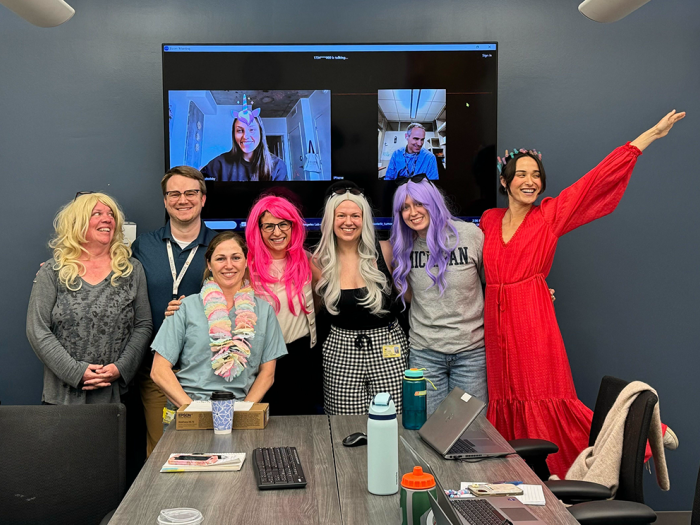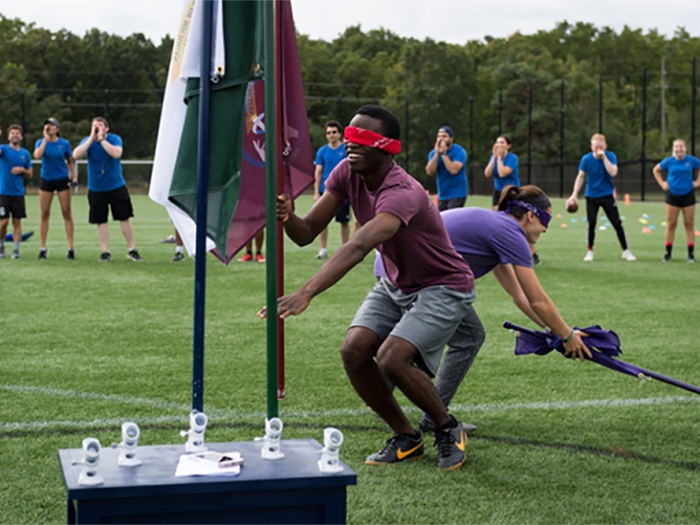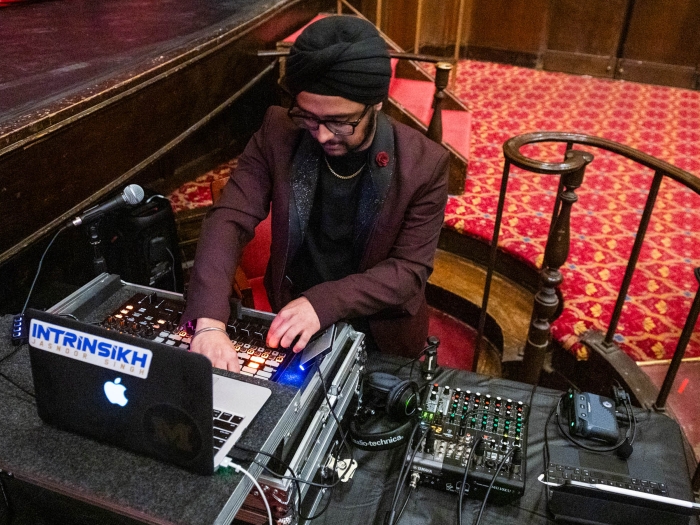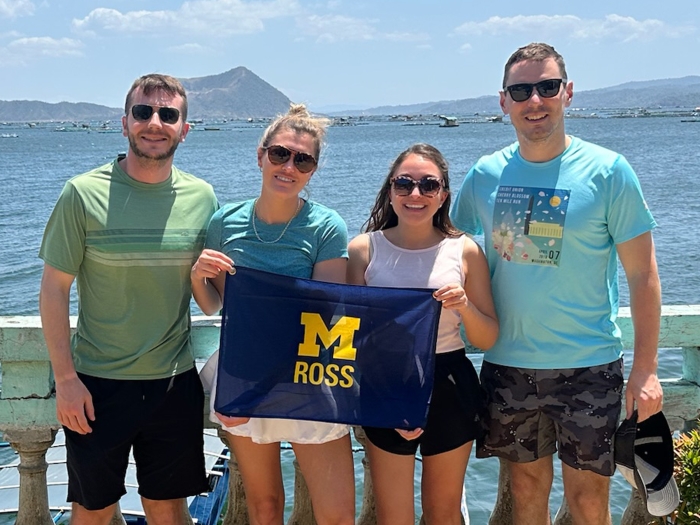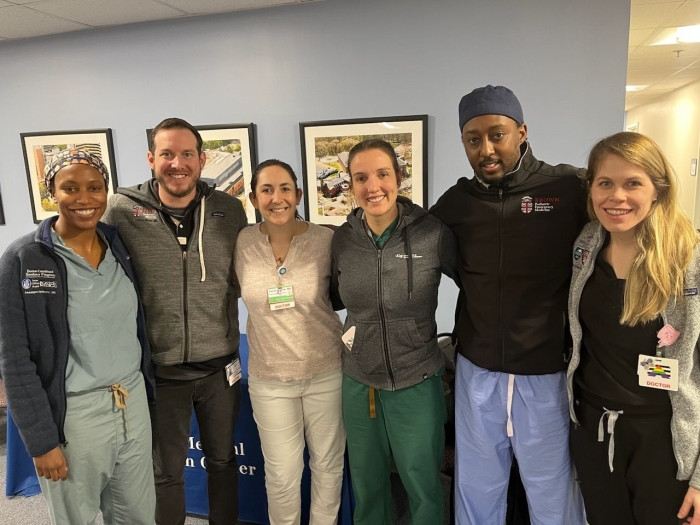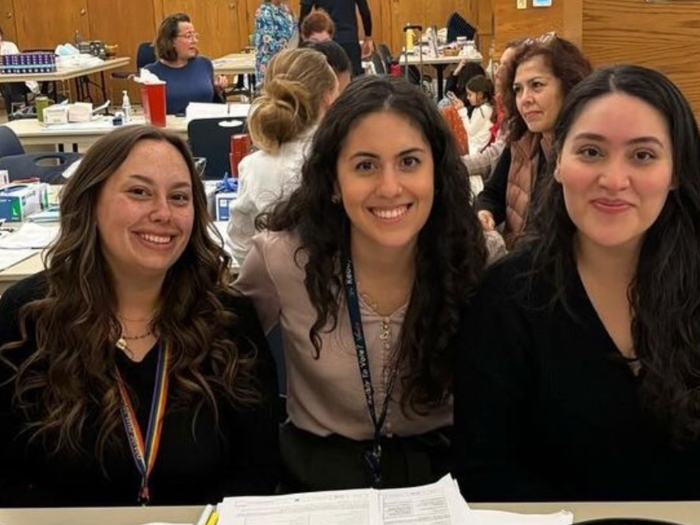
Andrew's Michigan Answer: Michigan has provided me with resources and support to commit myself to innovation and advocacy through research opportunities and community partnerships.
M1 Andrew Bolze (he/him/his) is originally from Hingham, MA and graduated from Harvard University in 2019.
Here, he shares some excellent advice for future med school applicants, thoughts on his favorite aspects of the Michigan curriculum, details on the opportunities he's been able to take advantage of in his first year, and much more!
What called you to explore a career in medicine?
One summer during undergrad, I had the opportunity to work on a clinical investigation looking at the effects of pre-operative protein calorie restriction on surgical outcome. I soon realized that I wanted to do more than just solve problems in the lab, but that I wanted to be the one applying these findings to patient care.
On top of that, I spent my time outside of the lab in college advocating for K-12 students struggling to cope with the demands of an increasingly stressful educational experience. I taught elementary school students the joys of science and middle schoolers how to use lifestyle medicine to live healthier lives.
A career in medicine will allow me to synthesize my passion for scientific research and advocacy. While I explored these interests independently in college, my time in medical school has allowed me to bring them together, learning how to be a doctor who provides both empathetic and innovative care to all.
What is one thing you wish you would have known while going through the medical school application process?
When applying to medical school, it is tempting to present yourself as the person you think medical schools want to see rather than who you truly are. I was someone who sometimes fell into that trap; I’d catch myself spending days preparing the “perfect” answer to every possible interview question. At my first few interviews, I let my over-preparation prevent me from expressing myself completely. I was more concerned with impressing my interviewers rather than just being myself. With practice, I learned to let my guard down, to have fun and to engage with the person I was talking to. Not only did these interviews become more enjoyable and less stressful, they also allowed me to better communicate my plans as a future physician.
I wish I would have known that I needed to be myself in interviews. Preparation is good, but too much preparation is not. Talk about your passions, how you grew from your failures and what makes you tick. Medical schools want to know who you are.
What have been your favorite features of the med school curriculum so far, and why?
As a first-year medical student, I am deep into the Scientific Trunk. As someone with a background in basic science research, I find it incredibly fulfilling to bridge the gap between biology and medicine. However, what I have found most enjoyable about the medical school curriculum so far is learning the art of providing care.
Every Tuesday, I meet with a group of 10 other first-years and two physicians for our Doctoring sessions. In these sessions we discuss a variety of topics, such as how to take a history, how to work with a medical interpreter, and how to address racism in medicine. In short, these sessions teach us how to be an effective physician.
Through the Interprofessional Collaborative Skills Introduction program, first-year medical students are required to shadow different members of the care team within the hospital. So far, I have shadowed a nurse within the Emergency Department and an Occupational Therapist. This program has exposed me to the incredible work these providers do for our patients and the integral role they play in the health care team, and seeing topics we learn about in the classroom in action solidifies my skills as a care-providing medical student.
Finally, the Clinical Reasoning Elective has allowed me to practice applying the skills we are learning in the first year of medical school to real patient interactions in a low-stakes setting. Working under an internal medicine physician, I have had the chance to work directly with patients within the hospital by taking histories, performing physical exams and putting together differential diagnoses. It has been extremely helpful to gain these experiences before starting clinical rotations next year.
My favorite feature of the medical school curriculum is the host of opportunities to apply classroom knowledge to helping real people early on in our education.
Share the health disparities, health equity and/or social justice work you’ve become involved in at Michigan?
Coming out as gay was one of the hardest experiences of my life. I was lucky enough to be accepted by my family and peers, but this is not the case for many. Even though progress has been made for LGBTQ+ rights in the US, there is still work to be done, especially when it comes to equity in medical care.
I came to medical school determined to advocate for the LGBTQ+ community, and joined the Health Equity Scholars Program at Michigan. As a Community Engagement Project Leader, I am working with my fellow medical student Reni Forer to establish a partnership with the Ruth Ellis Center of Detroit to expand and strengthen the medical school’s advocacy for LGBTQ+ youth. The Ruth Ellis Center provides housing and support to LGBTQ+ youth of Detroit, with an emphasis on young people of color, those experiencing homelessness and those involved in the child welfare system. We are organizing seminars and workshops to discuss mental health and career opportunities in health care, and to provide general peer support.
As a future physician, I plan to continue advocating for the LGBTQ+ community through such community partnerships, hoping to push healthcare towards a more inclusive system for all.
What types of research activities have you become involved in at Michigan?
At Michigan Medical School, there are endless opportunities to get involved in research. This fall, I received an email from a third-year medical student looking for first-years to help run a study looking at long-term outcomes of gender-affirming surgeries. It was a perfect fit for my interests, and I immediately applied. Luckily, I got the gig!
As part of this team, I am conducting chart reviews and connecting with research participants to better understand how their lives have changed because of their surgeries. It is our hope that findings from this research will improve physician counseling of transgender and gender-diverse patients considering gender-affirming surgery and allow patients to make better informed decisions, and to validate the utility of such procedures.
Being part of this research has not only allowed me to expand my advocacy for the LGBTQ+ community, but to better understand how I will be able to incorporate clinical research into my career as a physician. I hope to continue using research as a tool to not only advocate for my patients, but to provide more innovative, inclusive care for all.
What is your favorite place to go in/around the Ann Arbor area and why?
Every Saturday morning, there is a Farmers Market in downtown Ann Arbor like I have never seen. I go to the same produce stall each week to cut my own fresh herbs, visit my favorite plant stall to admire their vast selection of reasonably-priced plants, and catch up with the farmer that sells me my fresh eggs for the week. The Farmers Market is my favorite Ann Arbor spot because it makes me feel like a local.
What comes to mind when you think of your fellow students at Michigan, and how have they shaped your med school experience in big and small ways?
There are a few words that come to mind when I think of my peers at Michigan: humble, kind and collaborative. One of the benefits of the pass/fail curriculum during the Scientific Trunk is that everyone works together. We have a Google Drive for all the students where people upload Anki decks, study guides and whatever else they use to prepare for exams. We also have an active GroupMe chat where students ask questions and share jokes. Even though the material of the Scientific Trunk is immense and challenging, the collaborative spirit of my peers has made learning surprisingly painless and fun.
On top of this, my fellow students at Michigan are some of the kindest, most supportive people I have ever met. My anatomy lab partner, for example, is one of the funniest, warmest people I know. She makes what could have been a very stressful aspect of the Scientific Trunk one of the highlights for me. What’s more, the upperclassmen have been nothing but supportive. Earlier this week, I took part in a seminar where a fourth-year medical student spent a full hour teaching me how to tie different surgical knots.
The University of Michigan is made great by the people that make it up, and I am grateful to be in such a warm and collaborative learning environment.
How have you been able to connect with faculty mentors and/or peer mentors and how has that been important to your med school journey?
Through the Faculty Coaching program at Michigan, I have had the opportunity to develop a strong faculty mentoring relationship early on during my medical education. My coach is the person I turn to when seeking advice on any aspect of my life as a medical student. She has helped me fine tune my studying skills, reflect upon my goals as a future physician, and offered support as I moved from Boston to Ann Arbor.
Additionally, through my involvement in community outreach through the Health Equity Scholars Program and clinical research within the Plastic Surgery Department, I have developed relationships with a wide range of faculty at Michigan.
At this stage in my career, these faculty mentors have not only helped me explore my interests in medicine but have also served as examples for the type of physician I hope to be in the future. While my coaching mentor has helped me find balance during the first year of medical school, my mentors within the surgery department have helped me find ways to explore different medical specialties and where my interests and values most align.
What would you say to a prospective student who is considering the University of Michigan Medical School for their medical education?
As a first-year medical student at the University of Michigan, I cannot imagine a better place to prepare for a career in medicine. Starting clinical clerkships in the second year of medical school not only allows for more time to develop your skills as a physician, but also more time to explore your non-clinical interests such as research or community engagement. Additionally, while the Scientific Trunk is intense and challenging, you are motivated by the knowledge that in less than a year’s time, you will be applying what you’ve learned to real-world patients.
Michigan also offers an unparalleled number of extracurricular activities. During my first year of medical school, I have had the chance to dive deeper into my passions for advocacy and research, making medical school unbelievably rewarding. The collaborative learning environment at Michigan is something special. For these reasons, I have found my time at the University of Michigan even more rewarding, productive, and fun than I could have ever imagined.
If you are on the fence about attending Michigan, you should absolutely join us!
